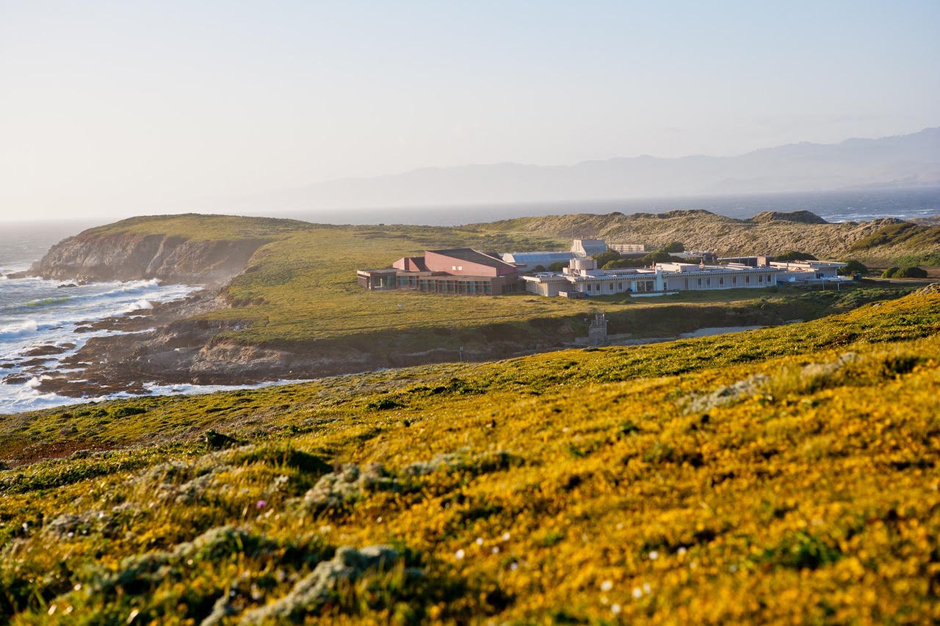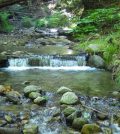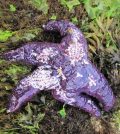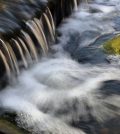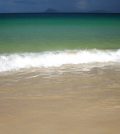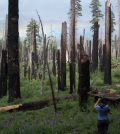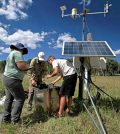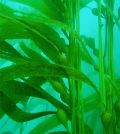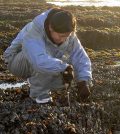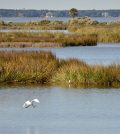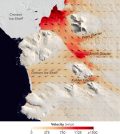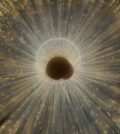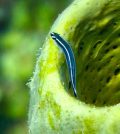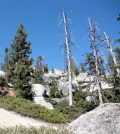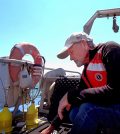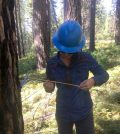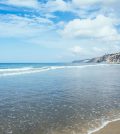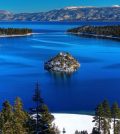Posts for tag "University of California"
UC Davis Bodega Marine Lab: Performing A Myriad of Environmental Monitoring Programs
Bodega Marine Lab and Reserve environmental monitoring ranges from tracking water quality to keeping an eye on harbor seals.
- Posted June 25, 2019
No Stone Unturned: Little Worlds Inside Stream Riffles and Pools
More than 15 years of monitoring the riffles and pools of streams reveals flexibility and connections between the benthic creatures that inhabit them.
- Posted September 21, 2018
Advanced Oxidation Processes for Wastewater Treatment
Recent research proves that adding a co-catalyst to Advanced Oxidation Processes (AOPs) renders them more efficient and effective, and reduces byproducts.
- Posted June 20, 2018
Long-Term Monitoring Aids Scientists Studying Sea Star Wasting Mystery
Scientists build on a foundation of decades of monitoring to help unravel the mysterious sea star wasting disease.
- Posted April 18, 2018
Scientists Calculate a Turbulence “Speed Limit” for Nitrate Removal in Any Stream
Researchers inspired by Da Vinci’s “La turbulenza” have calculated a turbulence “speed limit” for nitrate removal that can be applied to any stream.
- Posted March 29, 2018
Iron Hoarding and Recycling by Aquatic Plants in the Pacific
A team has discovered that phytoplankton hoard and recycle iron in the Pacific more than previously thought, affecting how they regulate the climate.
- Posted March 7, 2018
Researchers Find Link Between Forest Fires And Health
Researchers at UC Berkeley found that allowing, not suppressing forest fires, can improve tree health and help water spread through Yosemite National Park.
- Posted March 1, 2017
California’s Natural Reserve System Has Sights On Climate
University of California’s Natural Reserve System is the largest of its kind in the world, capturing data at 39 sites to help climate studies and more.
- Posted November 10, 2016
Marine Protected Areas Help Channel Islands Fish
The Channel Islands Marine Protected Areas have been good for fish, find researchers at the University of California, Santa Barbara.
- Posted November 9, 2016
High Levels Of Microcystin In Some San Francisco Bay Shellfish
Some shellfish in San Francisco Bay contain levels of microcystin beyond those noted as safe for consumption, say University of California researchers.
- Posted November 8, 2016
Coastal Wetlands Save Millions In Storm Damage
Scientists at University of California, Santa Cruz, led an effort to calculate a monetary value for storm damage reductions provided by coastal wetlands.
- Posted October 31, 2016
West Antarctica Glaciers Melt At Pace Not Seen Before
Researchers with the University of California, Irvine, and NASA have completed a pair of studies documenting the pace of glacier melt in West Antarctica.
- Posted October 27, 2016
Imaging Foraminifera Shell Formation Clarifies Sediment Samples
A study led in part by scientists at University of Washington pinpoints the beginnings of foraminifera shell formation.
- Posted October 26, 2016
Dynamics Of Fluid Movement Studied From Space
Researchers at the University of California - Santa Barbara are partnering with the International Space Station to study fluid movement.
- Posted October 20, 2016
Dispersing Larval Neon Gobies Shed Light On Other Goby Species
Boston University scientists find larval neon gobies don’t go far from their parents along a Caribbean reef. Results aid understanding of other gobies.
- Posted October 12, 2016
Vegetation Type Has Role In Future Sierra Nevada Stream Flows
Researchers at University of California, Santa Barbara, find changes in vegetation type due to climate warming will impact Sierra Nevada stream flows.
- Posted September 23, 2016
Marine Larvae Movements Studied By ‘Minion’ Robots
Autonomous robots deployed by scientists at University of California, Davis, are studying marine larvae movement and answering long-held questions.
- Posted September 21, 2016
Douglas Fir Trees Threatened By Increasing Droughts
University of California, Davis, scientists find that Douglas fir trees in the West are consistently affected by drought conditions.
- Posted September 15, 2016
Method Tracks Global Warming In Real Time
A team of scientists has developed a way to track the rate of global warming in real time using computer models that focus on global surface temperatures.
- Posted August 23, 2016
Lake Tahoe Sees Record Change In 2015
U. of California, Davis, researchers detail changes Lake Tahoe felt in 2015, including a drop in clarity and a record increase in temperatures.
- Posted August 3, 2016


